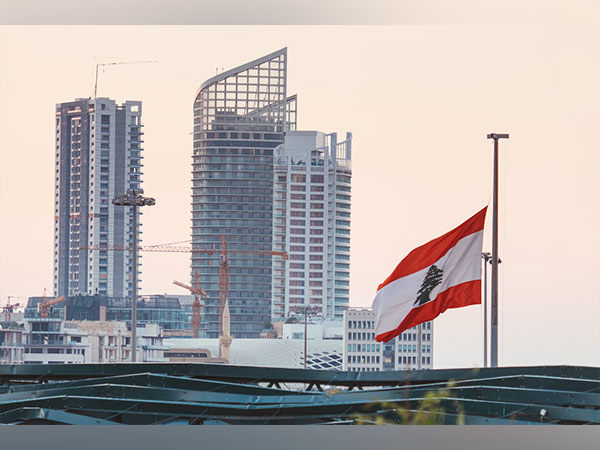

Lebanon, which in the past was called the “Switzerland of the Middle East” is now in complete meltdown, due to widespread corruption and reckless and unrestrained public spending by the various factions controlling the political life in the country.
Furthermore, Lebanon is currently unable to elect a President and form a government enjoying the support of the parliament, find a successor to the Governor of the Central Bank, service its huge foreign debt, stop feuding among Palestinians living in the country, and provide uninterrupted services like electricity or health care.
A World Bank report says that Lebanon’s economic collapse is likely to rank among the worst financial crises in the world since the mid-19th century. By February 2023, the Lebanese pound (LBP) lost more than 98 per cent of its pre-crisis value, as 15,000 pounds are equal to 1 USD. Inflation averaged 171.2 per cent in 2022, one of the highest rates globally, primarily due to the depreciation of the Lebanese pound.
The banking sector remains insolvent, as financial losses in the banking system exceed USD 72 billion, equivalent to more than three times the GDP in 2022.
But for ordinary people, the situation is even worse as roughly 82 per cent of the population are now below the poverty line, mainly due to the sharp loss in the value of Lebanese currency: As if this picture was not bad enough, Lebanon is now in an institutional vacuum. The term of President Michel Aoun expired last October, but the various factions in the parliament were unable after 12 consecutive sessions to elect a new President.
Currently, caretaker Prime Minister Najib Mikati is making desperate efforts to keep the country together and continue the operation of the government and state institutions by all means, covering state expenses through the use of mandatory reserves in the Central Bank of Lebanon.
Last Friday, the Lebanese people marked the anniversary of the giant explosion on August 4, 2020 which destroyed a large part of the Lebanese capital, killing more than 230 people and injuring at least 6,500 others. The explosion was triggered by a fire in a warehouse where 2750 tonnes of industrial chemical ammonium nitrate had been haphazardly stored for years.
It should be mentioned that the explosion was declared as the largest non-nuclear explosion in the world’s history, causing serious psychological trauma to millions of the city’s residents.
Three years after the explosion, investigation into those who were criminally responsible for it have not been concluded, as Judge Fadi Sawwan, who led the investigation was dismissed by the Lebanese court, after charging two former Ministers of Amal Party. Also, Judge Tarek Bitar, who succeeded him, has been unable to proceed following numerous legal appeals by various politicians suspected to be implicated in the affair. He also was threatened by the powerful pro-Iranian Hezbollah party.
Judge Bitar had asked the Parliament to lift the parliamentary immunity of some members who were formerly ministers, but his request was rejected.
Last January, Lebanese prosecutor Ghassan Oweidat, stopped Judge Bitar’s efforts to resume his investigation and ordered the release of all 17 suspects who had been arrested. This of course caused the reaction of many Lebanese people and organisations who see that the corrupt political system of the country wants to stop the investigation of the deadly blast.
Amnesty International accused Lebanese authorities of using “every tool at their disposal to shamelessly undermine and obstruct the domestic investigation to shield themselves from accountability”.
The US administration repeated its demand for the Lebanese authorities to complete investigations into the explosion in Beirut port.
Another indication of the inability of the Lebanese political system to function properly is the failure to appoint a new governor of the Bank du Liban (Central Bank of the country) following the retirement of Riad Salameh. After 30 years on the job, during which Salameh was initially hailed as a wizard, but later was widely seen as one of those mainly responsible for the meltdown of the country’s economy.
As the Lebanese economy collapsed and hundreds of thousands of Lebanese suddenly became poor and could not even withdraw their deposits from the banks due to the restrictions imposed, Salameh was accused of applying a Ponzi scheme and of embezzling public money.
Last May, French and German authorities issued warrants for his arrest, accusing him, inter alia, of money laundering.
Although the absence of a Governor will certainly increase instability in the economy, the notoriously bickering political parties were unable to agree on the person to replace Salameh as Governor. For this reason, they appointed as interim governor Wassim Mansouri, who was the vice governor of the Bank du Liban.
As if Lebanon did not have enough troubles already, a new serious problem was created in the Palestinian camp of Ein el Hilweh, near Sidon, where members of Fatah and Islamist groups clashed.
Thirteen people, including Fatah military general Abu Asharf al-Armoushi were killed. Another 40 people were wounded, while some 2000 residents fled their homes. Lebanese acting Prime Minister Najib Mikati has threatened to send the army if the battles between the Palestinian factions did not end.
Last Friday, Saudi Arabia called on its citizens to quickly leave Lebanese territory and to avoid approaching areas where there have been armed clashes, while Kuwait and Qatar called on their citizens to be cautious.
The situation in Lebanon is becoming desperate as the social fabric of the country is completely destroyed and people are divided and are exploited by politicians. Western countries may sit on the fence and watch Lebanon’s collapse or take action by threatening sanctions on the leaders of the factions that frustrate all attempts at solving Lebanon’s multiple problems.